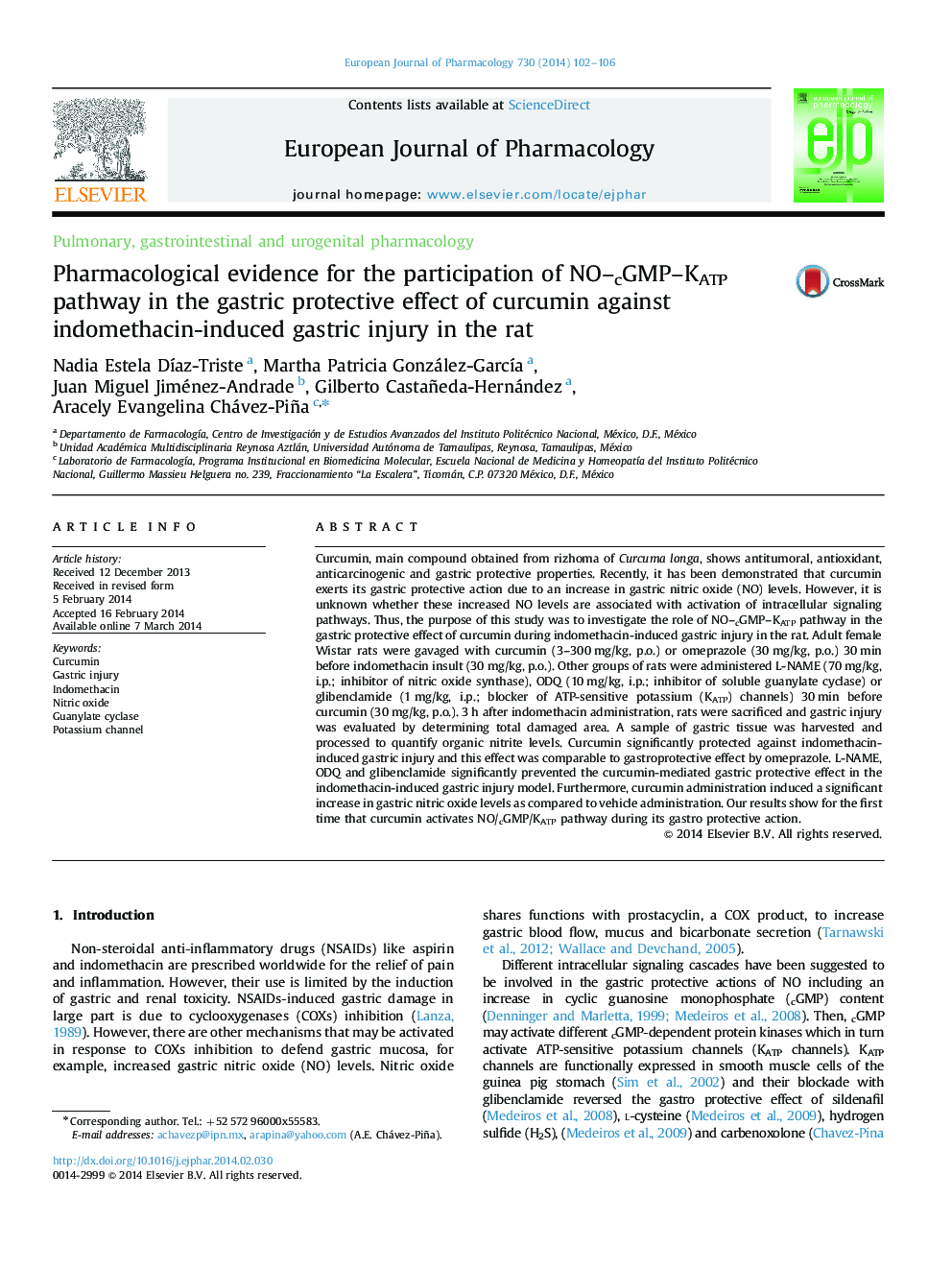| Article ID | Journal | Published Year | Pages | File Type |
|---|---|---|---|---|
| 5828071 | European Journal of Pharmacology | 2014 | 5 Pages |
Curcumin, main compound obtained from rizhoma of Curcuma longa, shows antitumoral, antioxidant, anticarcinogenic and gastric protective properties. Recently, it has been demonstrated that curcumin exerts its gastric protective action due to an increase in gastric nitric oxide (NO) levels. However, it is unknown whether these increased NO levels are associated with activation of intracellular signaling pathways. Thus, the purpose of this study was to investigate the role of NO-cGMP-KATP pathway in the gastric protective effect of curcumin during indomethacin-induced gastric injury in the rat. Adult female Wistar rats were gavaged with curcumin (3-300Â mg/kg, p.o.) or omeprazole (30Â mg/kg, p.o.) 30Â min before indomethacin insult (30Â mg/kg, p.o.). Other groups of rats were administered L-NAME (70Â mg/kg, i.p.; inhibitor of nitric oxide synthase), ODQ (10Â mg/kg, i.p.; inhibitor of soluble guanylate cyclase) or glibenclamide (1Â mg/kg, i.p.; blocker of ATP-sensitive potassium (KATP) channels) 30Â min before curcumin (30Â mg/kg, p.o.). 3Â h after indomethacin administration, rats were sacrificed and gastric injury was evaluated by determining total damaged area. A sample of gastric tissue was harvested and processed to quantify organic nitrite levels. Curcumin significantly protected against indomethacin-induced gastric injury and this effect was comparable to gastroprotective effect by omeprazole. L-NAME, ODQ and glibenclamide significantly prevented the curcumin-mediated gastric protective effect in the indomethacin-induced gastric injury model. Furthermore, curcumin administration induced a significant increase in gastric nitric oxide levels as compared to vehicle administration. Our results show for the first time that curcumin activates NO/cGMP/KATP pathway during its gastro protective action.
